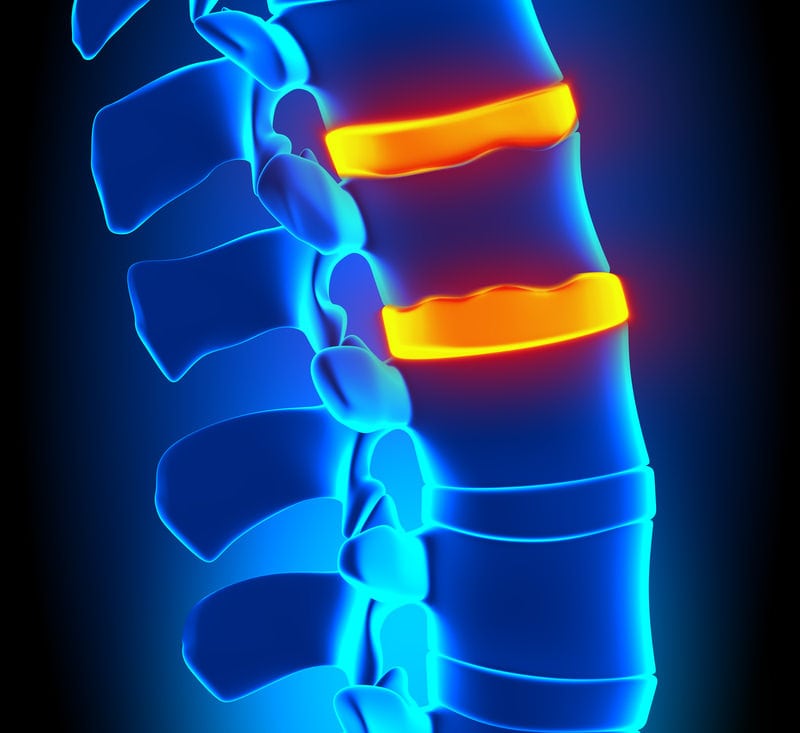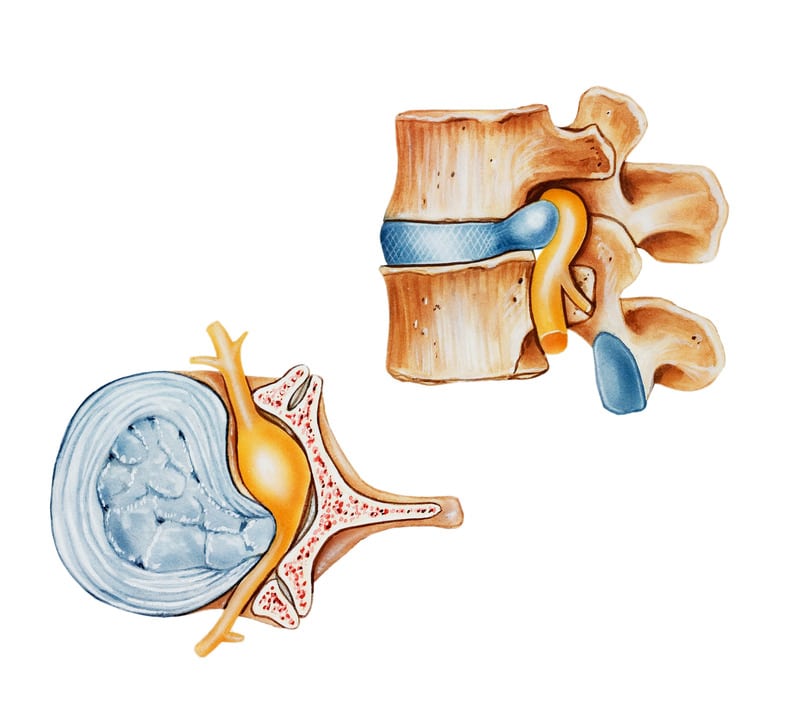Your spinal discs are made up of an outer layer of cartilage and an elastic material inside. Cracks in the discs can cause the elastic center to leak out. This is known as a herniated disc, and it can irritate the nerves that are nearby.

Causes
A herniated disc is most often caused by general aging and wear and tear. This is because discs become weaker and thinner with age. They also become less flexible. Sometimes, a fall or injury can lead to a herniated disc. You are also at an increased risk if you are overweight or do a lot of heavy lifting, due to the additional stress placed on your back.
Symptoms

The symptoms that you experience due to a herniated disc often depend on which disc is affected. For example, a herniated disc in your upper back can cause pain in your arm or shoulder, while a herniated disc in your lower back can cause pain in your leg or buttocks. You might also notice weakness or numbness in your arms or legs.
Some patients do not experience any symptoms at all.
Treatments
Pain management is the focus of herniated disc treatment. Sciatic nerve blocks can deliver a steroid or local anesthetic to the space around the nerve root in order to prevent pain signals from being processed by the brain. Epidural injections can also deliver medication to the spine. Percutaneous disc decompression, which involves the use of a needle to relieve pressure placed on the disc’s tissue, can also be utilized.
